
Laura Sanders reports on neuroscience for Science News. She wrote Growth Curve, a blog about the science of raising kids, from 2013 to 2019 and continues to write about child development and parenting from time to time. She earned her Ph.D. in molecular biology from the University of Southern California in Los Angeles, where she studied the nerve cells that compel a fruit fly to perform a dazzling mating dance. Convinced that she was missing some exciting science somewhere, Laura turned her eye toward writing about brains in all shapes and forms. She holds undergraduate degrees in creative writing and biology from Vanderbilt University in Nashville, where she was a National Merit Scholar. Growth Curve, her 2012 series on consciousness and her 2013 article on the dearth of psychiatric drugs have received awards recognizing editorial excellence.

Trustworthy journalism comes at a price.
Scientists and journalists share a core belief in questioning, observing and verifying to reach the truth. Science News reports on crucial research and discovery across science disciplines. We need your financial support to make it happen – every contribution makes a difference.
All Stories by Laura Sanders
-
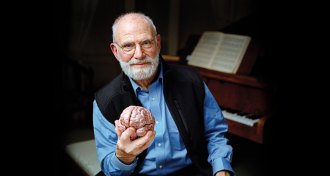 Neuroscience
NeuroscienceNew book offers a peek into the mind of Oliver Sacks
The wide-ranging essays in Oliver Sacks’ ‘The River of Consciousness’ contemplate evolution, memory and more.
-
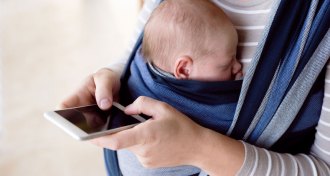 Health & Medicine
Health & MedicineParenting advice gets a fact-check
A new website called Parentifact attempts to fight parenting misinformation.
-
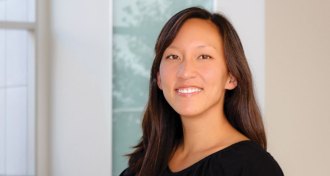 Neuroscience
NeuroscienceKay Tye improvises to understand our inner lives
To figure out how rich mental lives are created by the brain, neuroscientist Kay Tye applies “a new level of neurobiological sophistication.”
-
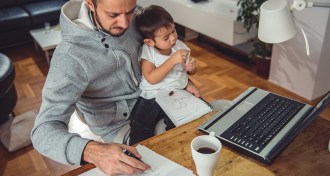 Health & Medicine
Health & MedicineSeeing an adult struggle before succeeding inspires toddlers to persevere too
When 15-month-olds watched an adult struggle and then succeed, the toddlers were more likely to try harder themselves, a study found.
-
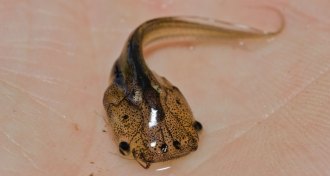 Health & Medicine
Health & MedicineFrom day one, a frog’s developing brain is calling the shots
Frog brains help organize muscle and nerve patterns early in development.
-
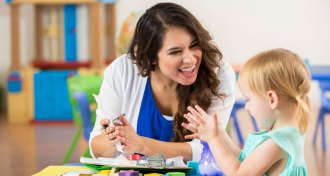 Health & Medicine
Health & MedicineTelling children they’re smart could tempt them to cheat
Kids who were praised for being smart were more likely to cheat, two studies suggest.
-
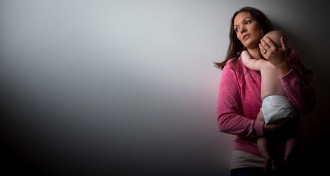 Health & Medicine
Health & MedicineHelp for postpartum mood disorders can be hard to come by
A new survey suggests that many postpartum women who suffer from depression, anxiety and other mood disorders don’t get the help they need.
-
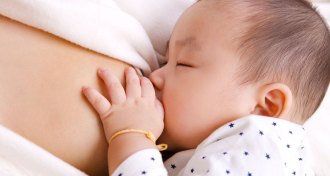 Health & Medicine
Health & MedicineSugars in breast milk may fight harmful bacteria directly
A small study finds that the sugars present in some women’s breast milk may fight potentially harmful bacteria.
-
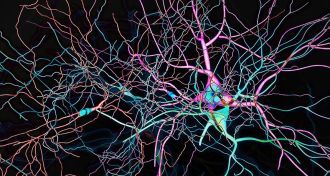 Neuroscience
NeuroscienceBrain chemical lost in Parkinson’s may contribute to its own demise
A dangerous form of the chemical messenger dopamine causes cellular mayhem in the very nerve cells that make it.
-
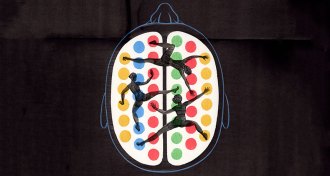 Neuroscience
NeuroscienceLearning takes brain acrobatics
Brains that learn best seem able to reconfigure themselves on the fly, a new line of research suggests.
-
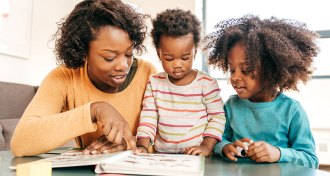 Health & Medicine
Health & MedicineSeeing one picture at a time helps kids learn words from books
A small study found that children were better able to pick up vocabulary from books that show only one picture at a time.
-
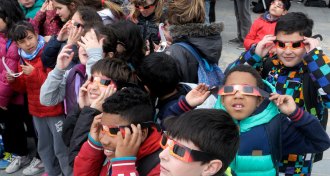 Health & Medicine
Health & MedicineProtect little ones’ eyes from the sun during the eclipse
Pay attention to eye safety for kids during the solar eclipse.